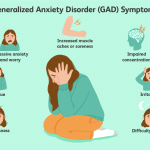Since 1949, 1st May marks the beginning of awareness against mental health month globally. However, even 72 years later, there remain immense taboos surrounding mental health worldwide. In some places, people don’t recognize the concept of mental health problems altogether.
People have historically remained averse to recognizing the seriousness of mental health disorders and how they can impact our minds and bodies. However, when left unchecked, mental illnesses can wreak havoc on our lives and can leave us feeling immensely isolated. They can have a substantial impact on not just us but our loved ones too. So, although we might be past mental health awareness month this year, that doesn’t mean we stop talking about the various taboos that prevent people from seeking help. Below, we’ll talk more about the ways we can spread awareness against mental health taboos.
Table of Contents
Conduct awareness campaigns
Although there are steps you can take personally, to help spread awareness on a larger scale if you have the right qualifications. Often, what causes so much stigma surrounding the topic is misinformation. It’s essential to tackle such issues on a larger scale to encourage more people to seek the help they need. Without adequate awareness, many may undermine the symptoms they feel or may attribute them to other causes. Additionally, they may feel too ashamed to seek help and cause their symptoms to aggravate as they attempt to deal with a debilitating disorder alone.
Online public health degrees can prepare health practitioners to work with the masses and spread awareness for various health-related disorders. It incorporates a wide range of disciplines to give you a holistic understanding of health-related issues. Furthermore, this degree offers a flexible program for you to complete in a short time. A masters in public health online helps you conduct awareness campaigns and understand mental health issues. Furthermore, the program allows you to understand which groups are more susceptible to mental illnesses and how you can protect them.
Talk openly with your loved ones.
While taking these significant steps, starting small and working on the ones closest to you is essential. Even though we are more connected than ever before, social media and fast-paced life can make it challenging to understand what’s going on with our loved ones. While you cannot force anyone to share their struggles with you, you can let them know that you’re a safe person to talk to.
It’s vital to offer a non-judgmental space to your loved ones, where they can discuss their concerns and struggles openly. It’s common for everyone to suffer from anxiety, depression, and other mental health issues at some point in their lives. However, most of the time, people don’t speak up about their struggles because they feel they’ll be ostracized or judged. By talking openly about your struggles and encouraging greater transparency, you will help normalize facing mental health struggles. In addition, you can promote this struggle of transparency and openness in your personal life and workspace to reduce mental health taboo.
Watch your language
You may not realize it, but your choice of words may inadvertently lead to you heightening the stigma around mental health. Negative comments can cause immense stigma around the topic and lead to anyone suffering in silence feeling even more isolated, ostracized, and neglected. Without realizing it, you may create labels, barriers, and stereotypes which can stick. Using words like ‘crazy’ or ‘psycho’ can create unnecessary divisions and negative stereotypes surrounding mental health issues. It reduces people to nothing more than their diagnosis.
Instead, using words without any negative connotations can help reduce the stigma surrounding mental health. Using positive comments can help create an atmosphere of acceptance, empathy, and hope surrounding mental health. It can make the people around you feel that they can come to you with their concerns, and it can make them feel like they’re more than just a diagnosis.
Use mental health diagnoses carefully.
In today’s age, we’re seeing more conversation surrounding mental health than ever before. Unfortunately, some of the discussions surrounding mental health can be leading. Overusing mental health diagnoses to label your attributes when you don’t fit into the criteria is an incredibly damaging act. For example, occasional mood swings don’t equate to bipolar; just preferring a clean home doesn’t mean you have OCD.
Suffering from a mental health disorder can be an incredibly debilitating experience. Unfortunately, it reduces the depth of the struggles they experience and instead makes it a commonplace occurrence. While mental health disorders may be more common than we may imagine, self-diagnosis is never advisable.
Encourage equality between mental and physical illness.
Much of the stigma surrounding mental disorders comes from the fact that many don’t recognize the severity and depth of mental issues. It’s easy to understand the severity of cancer or heart disease. But it isn’t as simple to grasp the effect of depression or bipolar disorder on us.
To reduce the stigma surrounding mental health, it can help to draw parallels to physical diseases. Most mental disorders have a biological effect on the body, changing hormonal levels, and alter normal brain functioning. So, just as you wouldn’t treat someone with cancer differently, you shouldn’t assume that a diagnosis of depression classifies someone as different.
Conclusion
Predominantly, it is a lack of information that leads to the stigma surrounding mental health. It can be frightening to feel that there’s something wrong with our minds and not our bodies. However, if we work together, we can help empower those suffering in silence and help them overcome their struggles without any shame.











